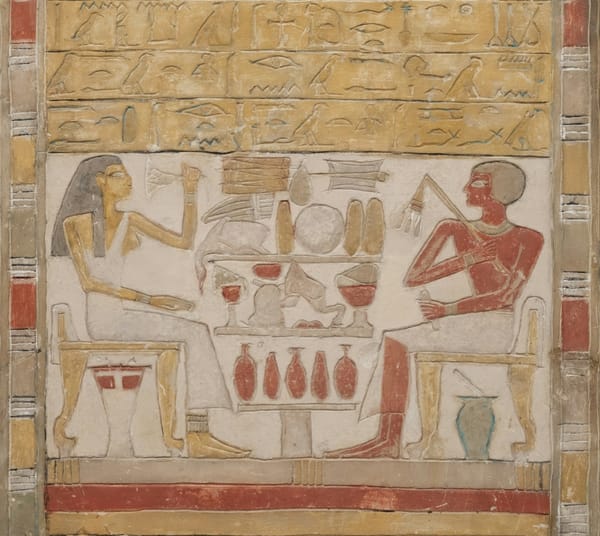Eighteenth century Britain was a tough place to be a Quaker.
Anyone who was not a member of the Church of England was barred from university, political life and the Guilds. Quaker principles of non-violence and a refusal to swear on the Bible meant the military and the law were not viable professions.
Faced with such sweeping proscriptions, there were not a lot of options for an ambitious young Quaker other than striking out on their own into business.
Yet, despite being unable to use the law to settle disputes and recover debts, Quakers managed to be phenomenally successful in business throughout the eighteenth and nineteenth centuries.
In banking, the Lloyd family left a permanent mark. Quaker confectioners like the Cadburys, Rowntrees, Frys and biscuit makers like Huntley and Palmers all made lasting contributions, and Quaker firms were at the forefront of technical innovations like railways, iron forging and pottery.
So how was it that a relatively small sect was able to build such a lasting entrepreneurial legacy?
The short answer is trust.
Quaker beliefs emphasized honesty and hard work. Business had to be done ethically, and Quakers prioritized this over simply acquiring wealth. And being trustworthy turned out to be a huge competitive advantage in a ruthless and unreliable market. It meant that people dealing with Quakers could rely on goods being delivered on time, on deals being honoured, and on prices being fair.
Quite an incentive, then, to do business with a Quaker.
My family has a direct connection with all this. My grandfather worked throughout his life for chocolate-makers Rowntree’s (the Quaker firm that invented Smarties and Aero). Quite early on in this journey he became a Quaker.
My father and his brothers went to Quaker schools, and my sister, brother and I spent varying times in Quaker schools as well. There, being honest, reliable (and therefore trustworthy) was not so much taught as simply expected. It was a part of the DNA of the place, and I have since carried it with me.
And I still believe it is incredibly important – both to be able to trust someone else and to behave in trustworthy ways.
There are two places where Trust is particularly important – work and romance: both areas that deal in relationships.
In the West, we tend to think about romance as a process of falling in love. We use this as the basis for all our long-term pairings. By contrast, we don’t talk about falling in trust, but we should.
We tend to think about romance as a process of falling in love. By contrast, we don’t talk about falling in trust, but we should.
I fell in love and got married very quickly, but over 40 years later Helle, my wife, and I are still together. This is not to say that it has been roses and sweetness throughout. Having children while forging careers puts a huge strain on any relationship.
There have been times when we were pretty ticked off with each other, but at no stage did I ever find a reason not to trust her.
This is why I believe that any enduring and equal partnership is likely to be built more on trust than anything else. Trust generates respect and the ability to live harmoniously.
It doesn’t matter how much you love someone, if you can’t trust them then your relationship is doomed to jealousy and recrimination. But if there is trust, then while love may ebb and flow, it can always be rebuilt into something stronger.
The dynamics of trust are different in a workplace. Love is not involved (normally) but the smooth running of any organization relies on networks of people who can trust and rely on one another.
I have been fortunate that the vast majority of my colleagues have been people I could trust. This is not the same as saying we could all agree. Actually, we often disagreed cordially. But, provided I could understand where someone else was coming from and could rely on them to act accordingly, I found I could work with them effectively.
By contrast, there were a few people who I simply could not trust at all. Some of them were quite pleasant socially, but they talked behind your back, told you one thing and did another and employed various other devious means to achieve their ends.
The problem here is that trust is not a sliding scale. If someone breaches trust you do not say, oh well they are only 99% trustworthy. It takes only one untrustworthy act to destroy all trust in that person.
Trust is not a sliding scale. It takes only one untrustworthy act to destroy all trust in that person.
Once you know someone is prepared to act dishonorably, then you will always, on some level, distrust them. And that does not make for a good working relationship.
In the late 1980s the New Zealand education system suffered an epidemic of ‘accountability’. Systems were put in place to ensure people were doing what they were supposed to. Vast amounts of resources were spent on checking up on people retrospectively.
It annoyed me massively because it meant the system was based on distrust. The best managers I have worked with were those who were happy to trust me and to treat me as a professional. In my sector, at least, I reckon 99 out of a hundred people are trustworthy. And the cost to the system of the few untrustworthy ones hiwas, I believe, far less than the costs of accountability compliance.
I think we see the legacy of the downgrading of trust in the way politics plays out today.
For better or worse, in a democracy people are essentially in a relationship with politicians. So, when we elect our representatives, you would expect us to choose people we trust, rather than ones who are just lovable, entertaining or shocking. But that is not what we hear from surveys.
In New Zealand, despite our having voted for them, politicians are the least trusted profession. And why is that? Apart from the general corrupting influence of power, a large chunk of the reason is probably that our relationship with politicians is mediated by another group with low trust ratings – the media.
With our friends and family, we know that the quality of our connection is related to both time and communication. We listen, we share, we negotiate and compromise.
With politics, while we can invest time, we seldom have direct lines of communication. We therefore rely on the media. Yet this is like only hearing about what our partner is up to via the local gossip.
And how can we rely on what we hear in the media when we know that it is the most sensational headlines that sell papers or garner clicks? Particularly the ones that amplify what we already believe.
Not that the media necessarily behave like gossips. At their best, they provide nuanced coverage of issues that allows us to understand those issues and how different parties are responding to them. Such coverage provides us with information that allows us to know if our politicians are earning our trust or betraying it.
But our increasing inability to trust that any given piece of news is being broadcast for valid rather than sensational reasons is leading to cynicism rather than understanding.
We don’t, I hope, conduct our personal relationships based on sensational sound bites, and no more should we be forced to do so with our political relationships. They are too important.
All in all, we could do worse than to have a look back at the early Quaker entrepreneurs and see how consistent, moral, trustworthy behaviour turned out to have such a beneficial effect. Our politicians, media – and some businesspeople – could learn a lot from it.

Each vignette invites readers to embrace the beauty of unfinished thinking and the art of holding life’s ongoing questions.











Member discussion